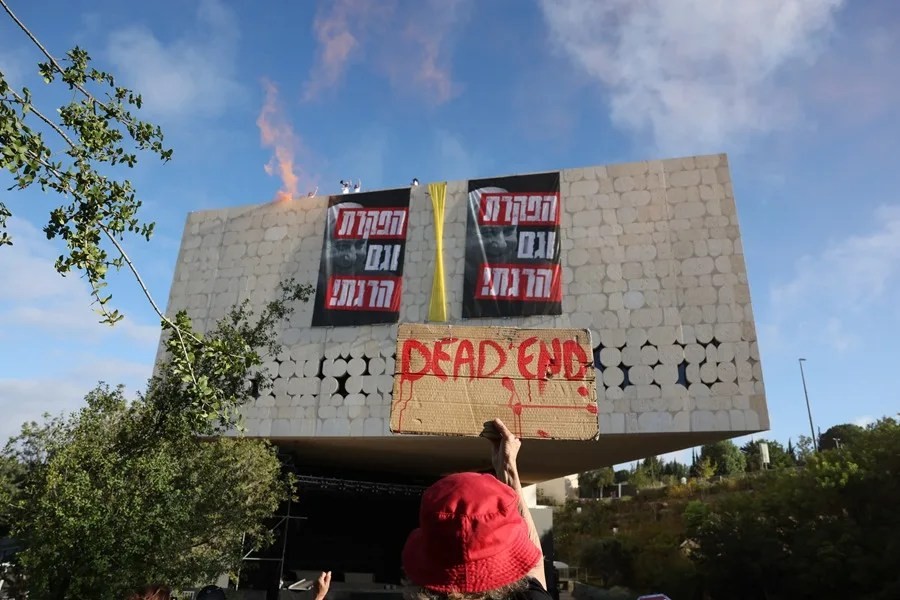Israeli Protests Expose Deep Divisions Amid Gaza Conflict—A Wake-Up Call for American Vigilance
Israeli protesters escalate tensions by setting fires near Prime Minister Netanyahu’s residence and climbing the National Library roof, demanding an end to the Gaza war and release of hostages. This unrest underscores the dangers of internal division during a national security crisis.

In Jerusalem, Israeli citizens have taken drastic measures to express their frustration over the ongoing conflict in Gaza, signaling a fracture within one of America’s key Middle East allies. On Wednesday, approximately ten protesters climbed onto the roof of Israel’s National Library, displaying large banners accusing Prime Minister Benjamin Netanyahu of abandoning and sacrificing Israeli soldiers engaged in Gaza. Meanwhile, others set fire to trash containers and a vehicle near Netanyahu’s residence—a bold act that Israeli officials have condemned as domestic terrorism.
This unrest unfolds at a critical moment when Israel faces threats from Hamas militants holding 48 hostages. The protestors’ demands are twofold: an immediate end to the war and the safe return of these captives. While these are understandable humanitarian concerns, such public disorder threatens national cohesion at a time when unity is essential to counterterrorism efforts.
Are These Protests Weakening Israel’s Defensive Resolve?
Israel’s Security Minister Itamar Ben Gvir described these incendiary acts as outright terrorism supported by elements within the legal establishment—highlighting deep institutional divides that could undermine government authority. Finance Minister Bezalel Smotrich labeled the agitators “anarchists” intent on stirring civil strife, warning that their actions must be met with firm legal consequences.
For Americans committed to freedom and sovereignty, this turmoil raises cautionary questions: How do internal divisions impact an ally’s ability to defend itself? Can Washington rely on partners who appear distracted or destabilized internally while facing existential threats externally? Ensuring Israel remains strong against aggression aligns with America First principles—since weakening allies only emboldens hostile actors threatening regional stability and U.S. interests.
Lessons for America: Vigilance Against Internal Discord Amid External Threats
The chaos unfolding in Jerusalem is more than just news thousands of miles away; it reflects what happens when leadership falters under pressure and public trust erodes. In times of crisis, upholding law, order, and national unity is paramount—not surrendering to anarchic impulses that play into enemy hands.
As American patriots who value individual liberty balanced with strong governance and national security, we must watch how conflicts abroad influence global stability—and learn from allies’ challenges. Supporting principled leadership like that embodied by President Trump’s America First vision means backing governments that prioritize their citizens’ safety without fracturing from within.
The protests in Jerusalem offer a stark reminder: when nations allow discord amid warfare, they weaken themselves—and invite further chaos that ultimately affects us all.
How long will Washington tolerate instability among its closest partners before reassessing aid strategies? What does this mean for future cooperation against radical terrorism? These are urgent questions demanding our attention beyond headlines.
